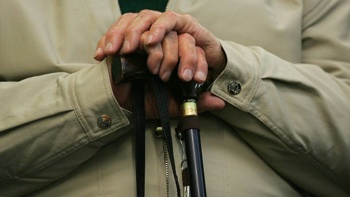Warning: Graphic content
As a young woman, Olha Turska saw a documentary about New Zealand and, ever since, dreamed of visiting the country continents and oceans away from her own in eastern Europe.
Decades have passed and the title on the screen is long forgotten, but Turska is here - not by choice, but with gratitude and a determination to make the best of her new life as a refugee, aged 68.
"I'm optimistic, I hope I can adapt", the Ukrainian mother told the Herald on Sunday this week from her daughter's Auckland apartment.
"There's no way of telling until you live through it."
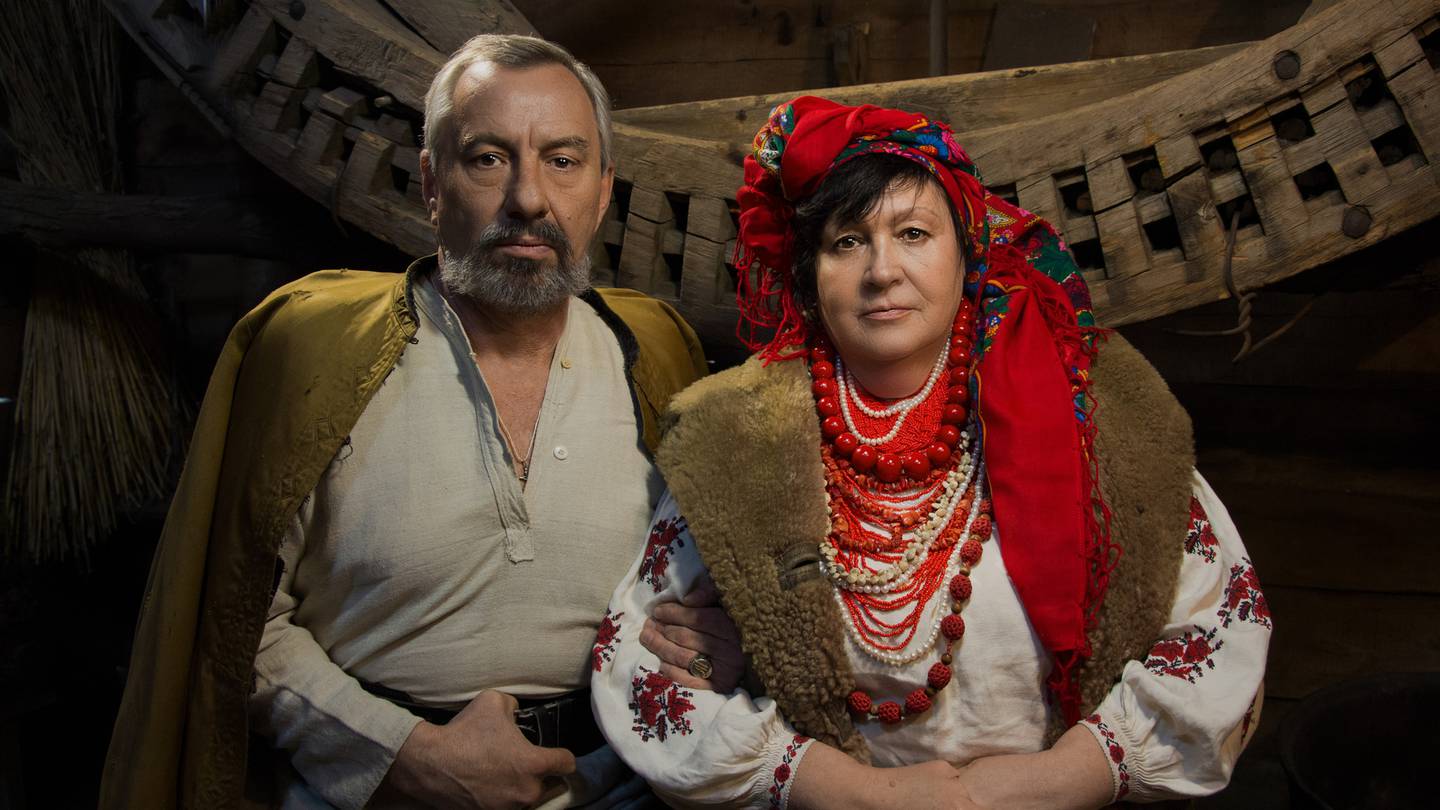
Andrii Mishchenko and Olha Turska are from the city of Sloviansk in Ukraine, expected to soon be a critical battleground as Russia moves its 2022 invasion to the east. Photo / Supplied
Turska and her husband, Andrii Mishchenko, arrived in New Zealand after a precarious 2000km car journey across a country at war and then more than 24 hours in the air.
The couple are among more than four million Ukrainians to flee the country since Russia invaded seven weeks ago, coming to New Zealand under a visa scheme for immediate family of Ukrainians with New Zealand citizenship or residency.
In their case that's daughter Kate Turska, who acted as interpreter for the Herald on Sunday interview as her parents, who know no one else in New Zealand and speak little English.
As they go through the process of starting life again in a new country, moving into an apartment, registering with a GP and learning their way around, they remain in close contact with those still in Ukraine, unwilling or unable to leave.
Slovyansk, where Turska was born and lived up till now, and where the couple's newly-renovated family home is, is considered by military experts to be the next target as Russia moves its focus to the eastern part of the country.
Authorities this week urged remaining residents in the city of about 100,000 to evacuate.
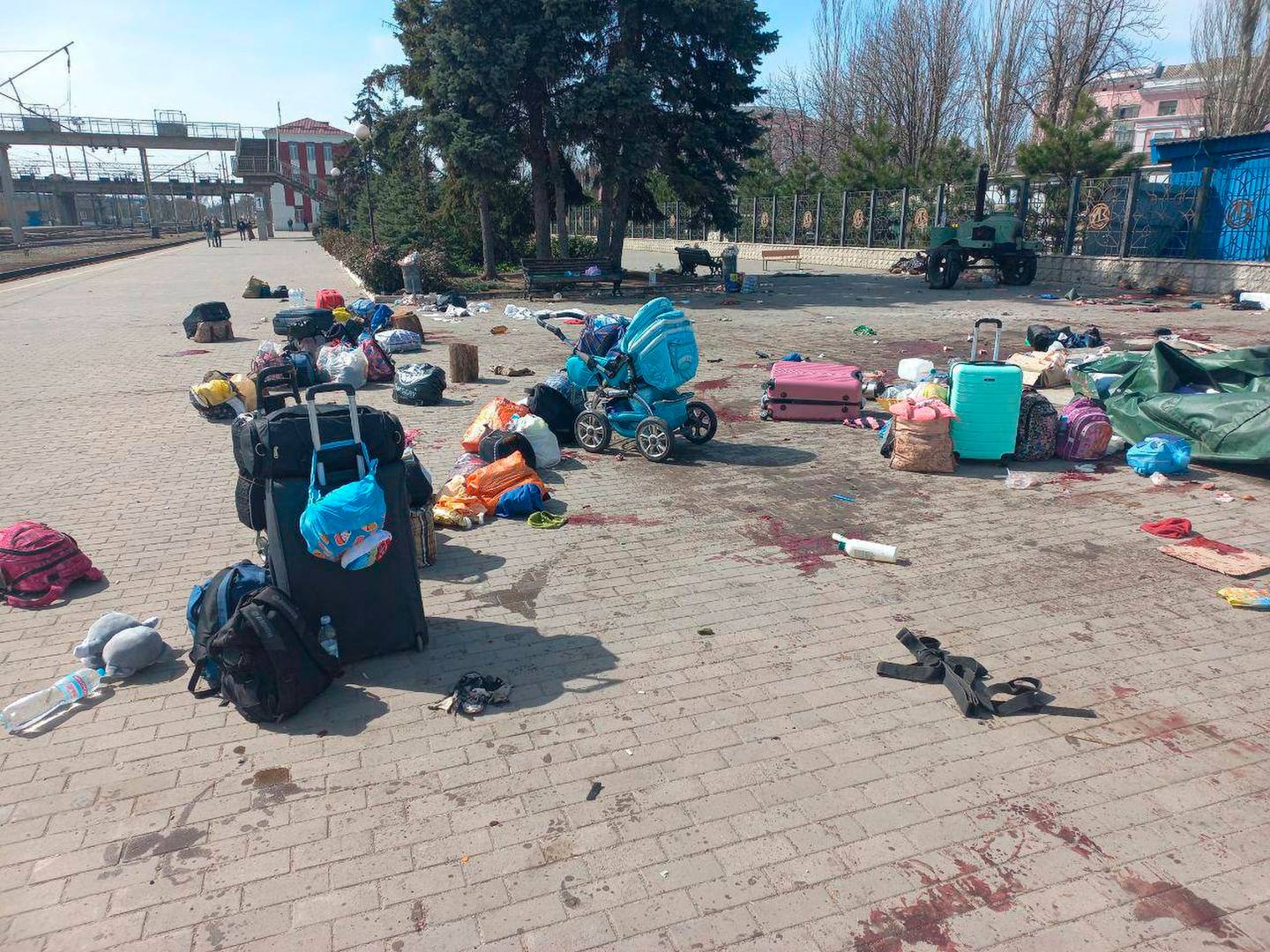
The ghastly scene at Kramatorsk train station in Ukraine, where civilians trying to escape the warzone were killed and injured by a Russian missile attack last week. Photo / AP
Nine days ago, a Russian missile attack at a railway station full of evacuees at Kramatorsk, 20km away, killed 57 civilians and injured 109.
The parents of one of Kate Turska's friends were among survivors in the attack denied by Russia, claims dismissed by Ukrainian authorities, the European Union and the US Defense Department.
The attack on civilians in neighbouring Kramatorsk was exactly what he expected from the Russian Army, said Mishchenko - who chose to speak in Russian during the interview because he wanted Russians to know Ukrainians who shared their language "don't need their saving".
"If [Russia] are unable to take Slovyansk we expect it to be levelled in the same manner as Mariupol or Kharkiv. [With our house], it's just all down to fate now.
"If I was there, what could I do? If the bomb was coming, I couldn't take a bat and swing it off. We'd just die there … and at this point people don't even get buried, we'd just be lying there dead and the dogs would eat us."
For now, they rely on updates from neighbours without the means to leave the city, and photos from home.
Turska beamed as she showed the Herald on Sunday photos from the home where her husband had done all the renovations over many years after the couple lost their business in the economic downturn that followed Russia-backed separatists violently occupying Slovyansk for 84 days in 2014.
There was the new home-built outdoor oven, the grapes grown for homemade wine and the flowers from her garden.
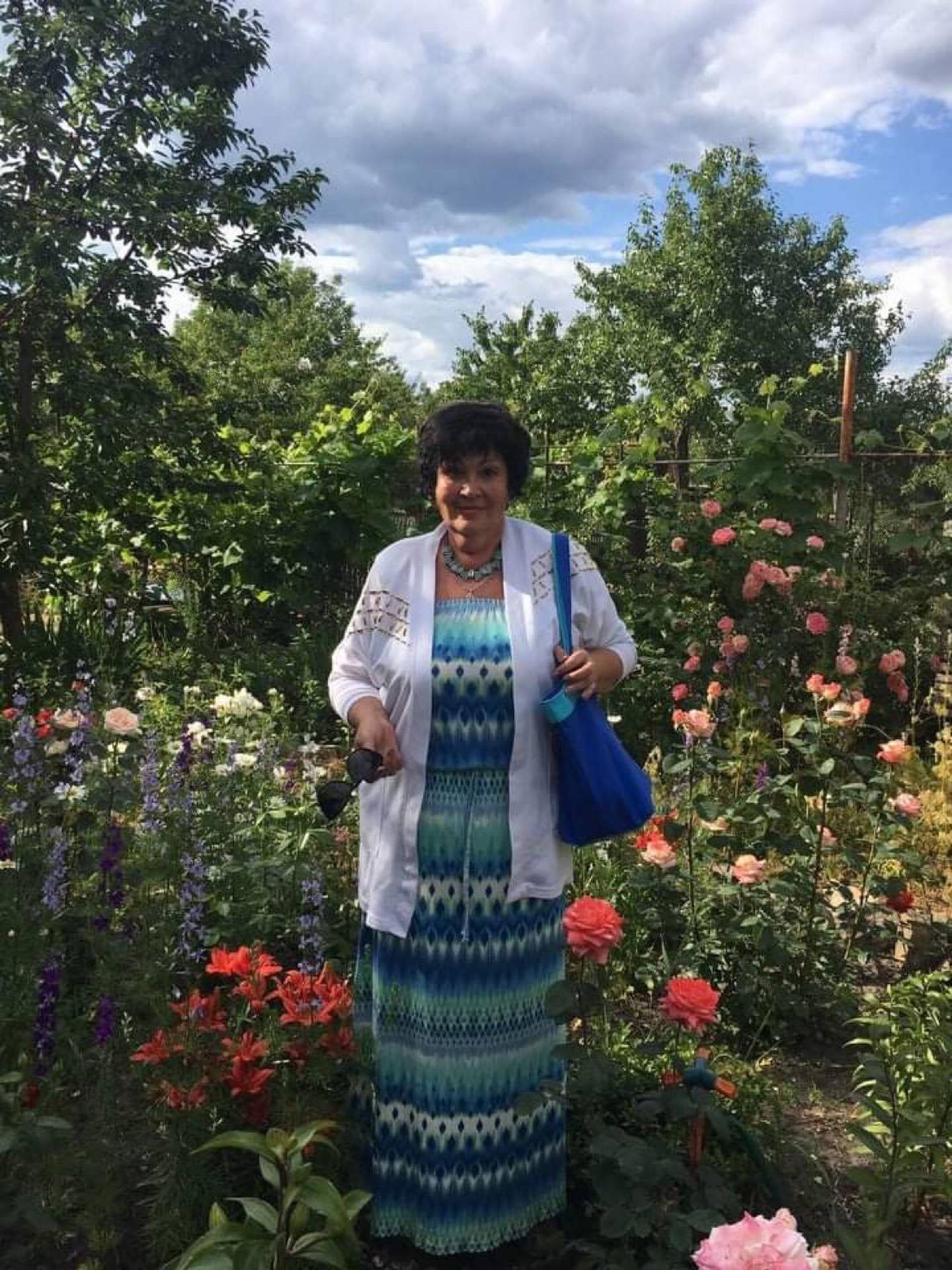
Olha Turska only has photos now to remember the garden she left behind at her home in Slovyansk, Ukraine. Turska became a refugee after Russia invaded her country in February. Photo / Supplied
But her mother's smiles were partly for the Herald on Sunday's benefit, Kate Turska said.
The pensioner actually cried every day at the news from home, and her fears for friends and family left behind - including those in blockaded Mariupol, their fate unknown in a city where the local mayor said more than 10,000 civilians have died and corpses "carpet the streets".
Asked about the torture, rape and murder by invading soldiers on civilians, including children, in Ukrainian towns such as Bucha - war crimes that US President Joe Biden this week joined Ukraine President Volodymyr Zelenskyy in calling genocide - Turska said she felt "just pain".
"It's horrendous … they're coming after the civilian population. It's genocide. They're bandits and they're butchers."
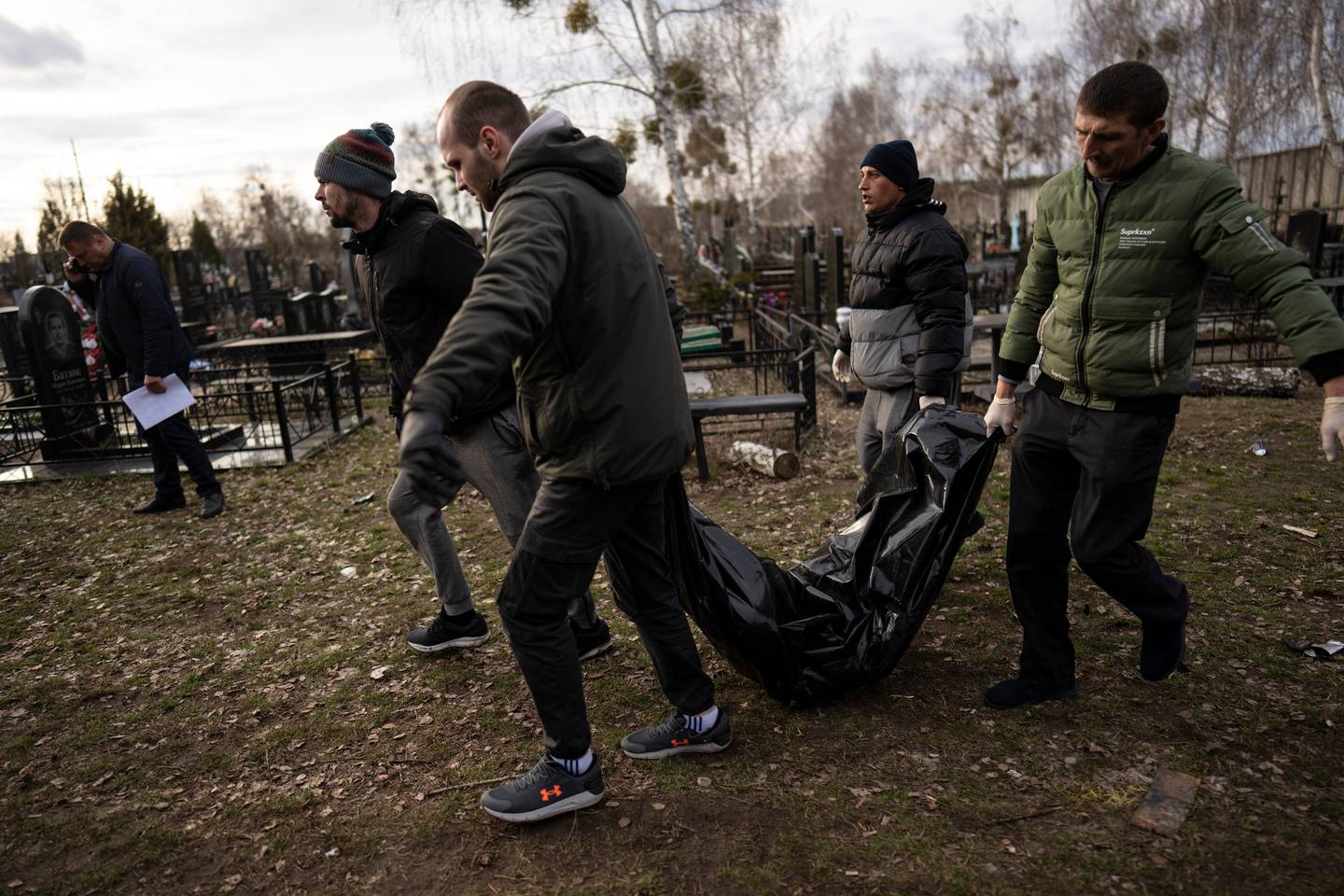
Cemetery workers carry to remains of one of those killed in Bucha - near the Ukrainian capital of Kyiv and where Russian soldiers are accused of war crimes - to a morgue transport. Photo / AP
Mishchenko, who worked in Russia before the break-up of the Soviet Union 30 years ago, had lived where the invaders came from - remote regions "where life isn't great", he said.
"The military is a reflection of the country and society, no matter what country … it's a mirror of your country, and this is a mirror you don't want to look at."
He was grateful to everyone in New Zealand who'd advocated for the visa to help families of Ukrainian Kiwis, and the Government for listening to those people.
"A big thank you … we're absolutely glad and grateful we were able to come."
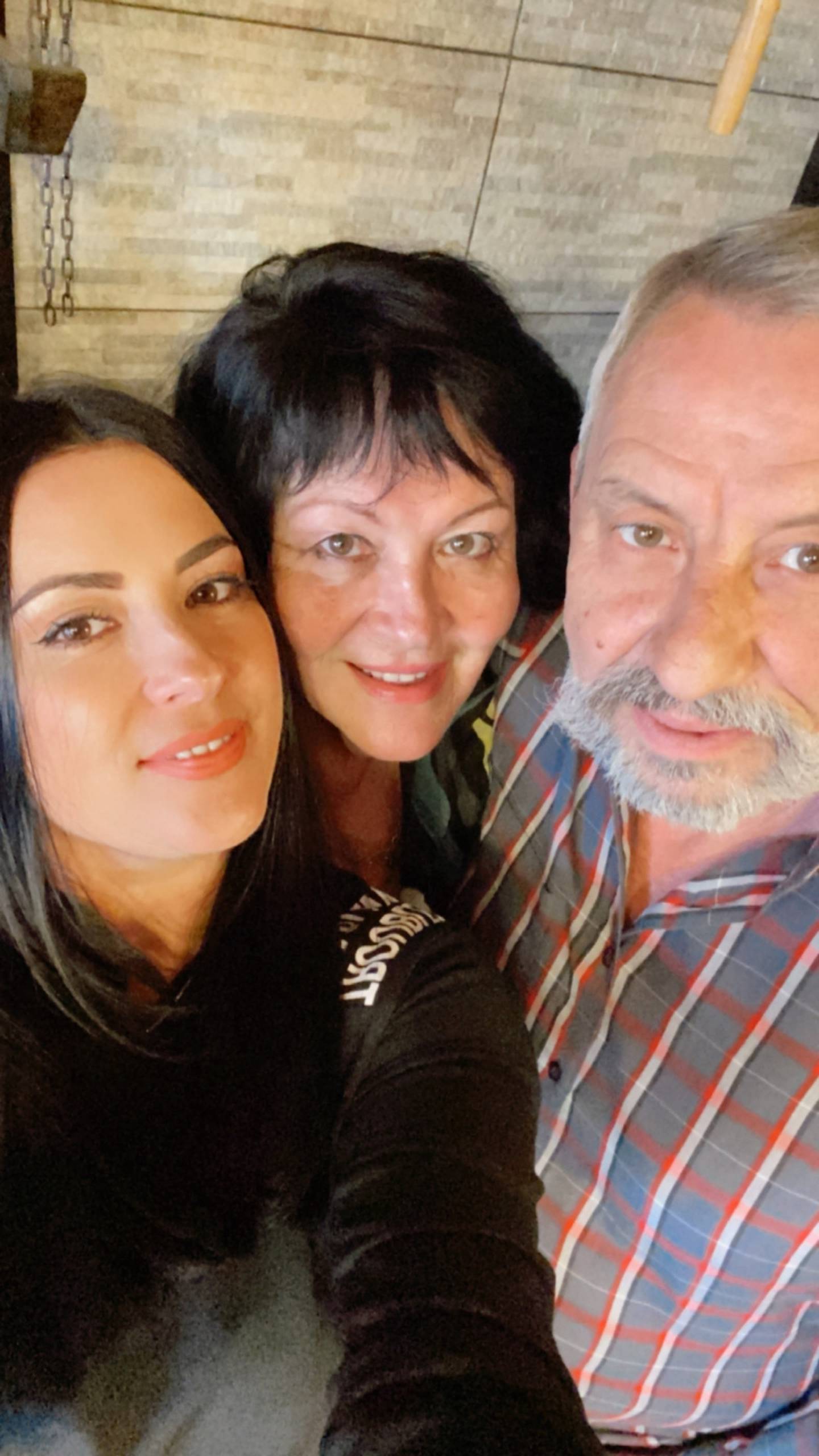
Kate Turska, left, and her parents Olha Turska and Andrii Mishchenko. Photo / Supplied
But he also sounded a warning over comments he'd seen on Russian-speaking online groups in New Zealand.
"I'm not predicting it, but if one morning you wake up and the same things are happening here, I wouldn't be surprised because of the mood within the Russian community."
Turska used a word favoured by Ukrainians, and Russians who were against the war – "Ruscism" – a combination of Russia and fascism, which her daughter translated as meaning the spread of "the Russian world".
"Protect your democracy and your way of life with everything you have", Olha Turska said.
"Because this movement gaining momentum is a threat for any democratic society, and as fascism spread across the world Ruscism is set up to potentially do the same unless democratic societies are awake to it."
How you can help the people of Ukraine
- World Vision-NZ Herald Ukraine Crisis Appeal: worldvision.org.nz
- Kate Turska's Givealittle: https://givealittle.co.nz/cause/help-a-ukrainian-kiwi-to-standwithukraine-1
- Advice from NZ-based Mahi for Ukraine: www.MahiforUkraine.com
- Mahi for Ukraine Givealittle: https://givealittle.co.nz/cause/relocation-costs-for-ukrainians-fleeing-the-war
Take your Radio, Podcasts and Music with you









